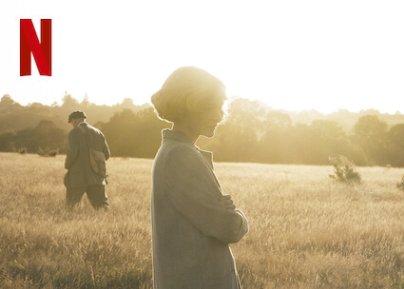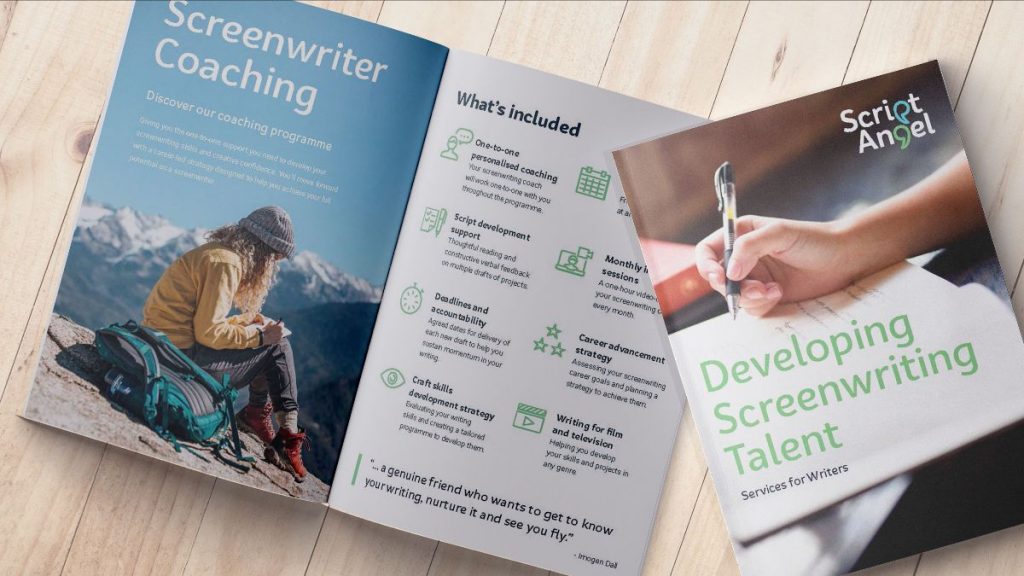Screenwriter interview with Moira Buffini (‘Harlots’, ‘Tamara Drewe’, ‘Handbagged’), talking with Alistair Owen and the Writers Guild of Great Britain about adapting John Preston’s book ‘The Dig’ for the screen.
The film, starring Carey Mulligan, Ralph Fiennes and Lily James, tells the story of a British widow who on the eve of World War II hires a self-taught archaeologist to dig up mysterious formations on her land, leading to a staggering find.

How did you come to adapt the novel and what drew you to it?
A producer friend gave me the book and I couldn’t put it down. I thought it was beautiful and it left me feeling emotionally raw. I knew I wanted to do it. Sometimes you have to audition for it. I didn’t this time but I did for ‘Jane Eyre’ – I went in and made them give me the job!
This was more gentle than the work I normally do, which usually has more edge, more teeth, but I felt that the story opened up the human heart and I think that’s what I do in all my work.
Commissioners always ask ‘why now?’. What were the resonances for you of this work?
It’s always a really good question. I think there is a always a why now for stories about outsiders, which this is. And right now we’re all thinking about our fragility, our mortality, which this story explores.
How much input did John Preston have into the script?
It’s very important to me that anything I do where the author is living, that they like it, that they think reflects their work. Films are different, you do have to reinvent it but I really wanted him to like it. I met him several times and I’m really pleased that he does like it. You’ve got to honour the author and the book when you adapt.
How much research did you do beyond the book, into the events and the characters?
I did loads! I love research and I think it’s very important. I think you find pearls. I found biographies of Edith and Basil. I went to Sutton Hoo. I read May’s letters to Basil. Then I spent a lot of time in libraries. I found a book which details the whole dig, including Basil’s diaries, the coroner’s report, all the photographs of the excavation and the finds. I did everything I could.
If you found sources that contradicted the novel, what did you do?
I always chose the most dramatically interesting thing to do – my job is not academic in any way. Although research really matters, and you can’t do anything that is a lie, and you try to be truthful, but at the same time you’re a dramatist. You have to be diligent and do the research but then you’ve sort of got to forget it all as well.
In the novel, which is written as a series of diaries, there isn’t really a relationship between the central characters, who are each very isolated figures. How did you go about solving that?
Bit by bit and draft by draft. In the book you get great interior lives of the characters but not much interaction. I gradually began to draw a relationship between Basil and Edith, a platonic relationship, and I knew that the little boy Robert was key to that. Basil and Edith are kindred spirits, they share a deep regard for the same thing. I know what that’s like, I have those relationships, where you share a deep feeling about the work and you work creatively together. I knew that was the kind of relationship, which we rarely see on screen, that I wanted to write for Edith and Basil.
Quite a lot of the scenes are very short, with very few lines of dialogue and yet they feel packed full of stuff. How do you achieve that?
I think that is the process of writing film – to distill as much as you possibly can into each scene. And if a scene isn’t significantly moving something on dramatically then it probably isn’t finished yet or has no place. Through the drafts you hone that until each scene, each direction, each line, is working really, really hard.
To watch the full video-interview, visit the WGGB YouTube channel below:
The Writers’ Guild
To find out how the Writers’ Guild of Great Britain supports writers, and how to join, visit:
Screenwriter Coaching
And find out how Script Angel can help you to develop your writing and projects through our Screenwriter Coaching service.




